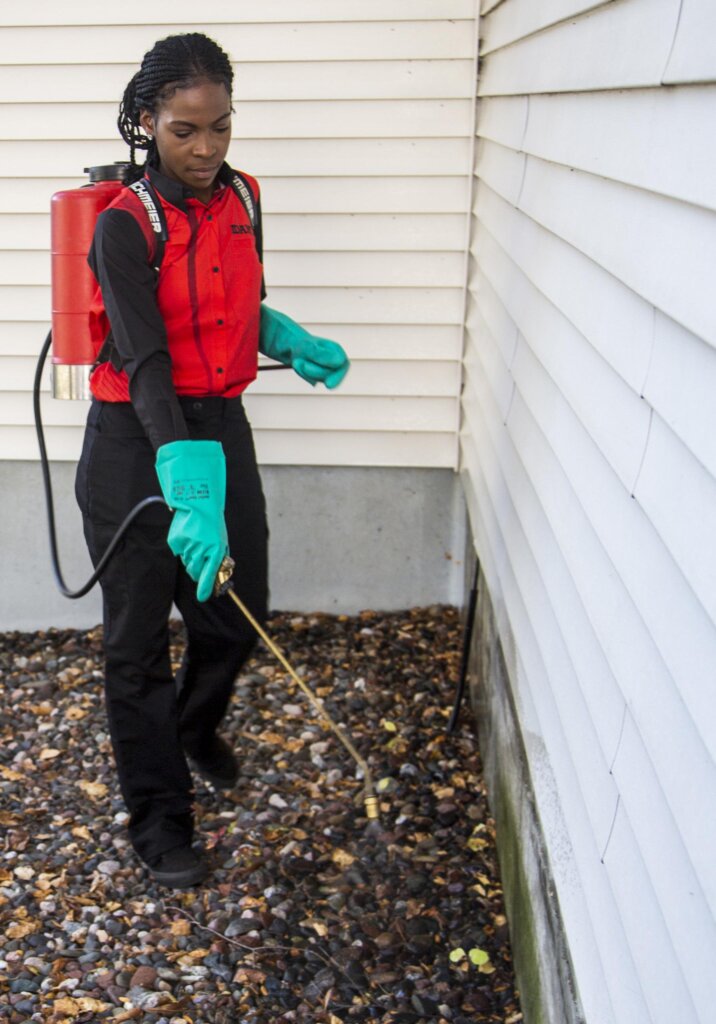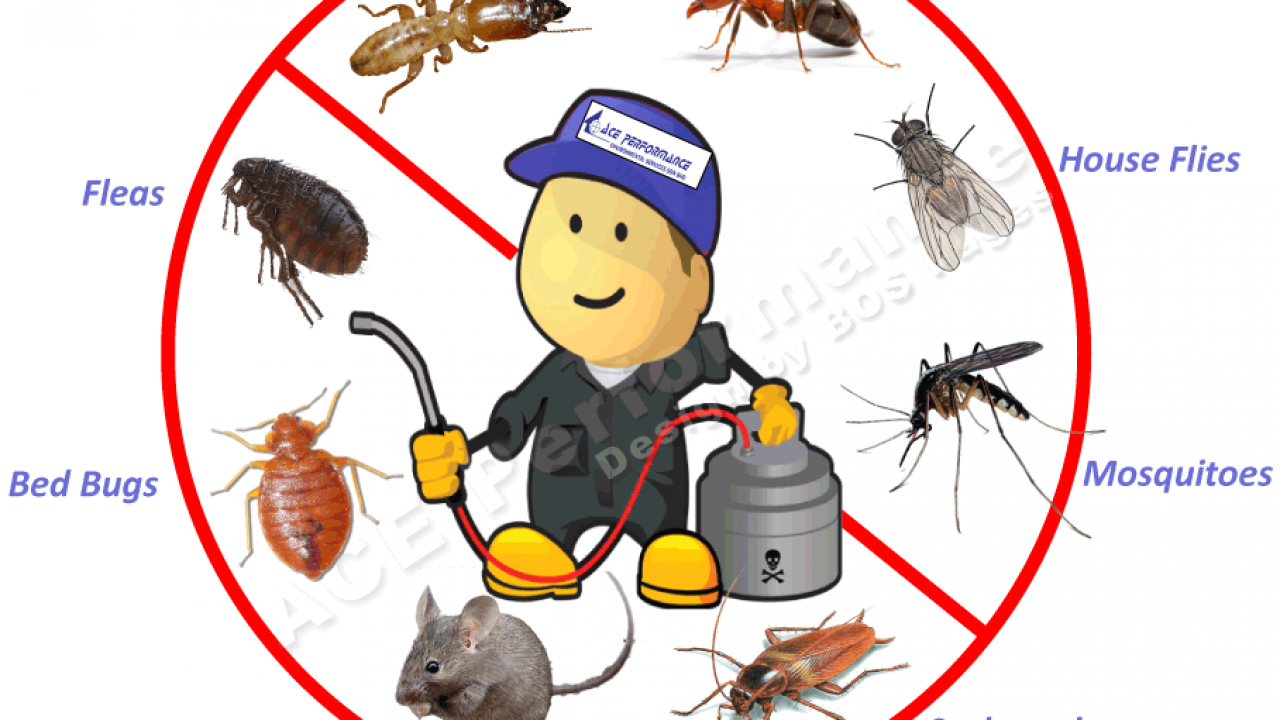A Comprehensive self-help guide to the Different kinds of pest control management techniques
Pest control is an important part of sustaining an excellent and livable environment, whether it is in our homes, gardens, or workplaces. Aided by the many pest control techniques readily available, it can be intimidating to discover the most effective remedy for a specific problem with pests. From substance and biological methods to bodily and organic options, each approach features its own unique strengths and limits. In this detailed guide, we'll check out these different sorts of pest control management practices, supplying ideas within their applications and advantages. Towards the end, you will have a clearer knowledge of which method will be the best fit for the pest control requirements. Thus, why don't we jump to the interesting world of pest control management and uncover the tips for a pest-free planet.
Chemical Pest Control Methods

One common types of substance pest control is actually pesticides. Insecticides tend to be chemical compounds which happen to be especially created to destroy or repel insects. They could be used in a variety of forms, for example aerosols, baits, or dusts. Pesticides target specific bugs, instance mosquitoes, termites, or ants, and will be properly used both indoors and out-of-doors.
Another type of chemical pest control is rodenticides. They are substances built to control populations of rodents, like mice and rats. Rodenticides are typically included in bait form, which pulls the rodents after which kills all of them after intake. These are typically widely used in agricultural settings, along with domestic and industrial buildings.
Weed killers, also referred to as herbicides, tend to be a different type of substance pest control strategy. Herbicides are made to precisely kill unwelcome flowers, acknowledged weeds, without causing damage to attractive plants. They might be widely used in farming, gardening, and gardening to regulate the development of unwanted plant life.
While chemical pest control strategies can be noteworthy in reducing pests, it is essential to make use of them judiciously and follow protection instructions. Overuse or misuse of substance pesticides or herbicides can have unfavorable influences on person health and the surroundings - Pest control near me. For that reason, it is crucial to use these methods responsibly and give consideration to renewable pest control strategies whenever you can
Biological Pest Control Techniques
Biological pest control strategies include the utilization of living bacteria or natural chemicals to deal with and get a grip on pest populations. Unlike chemical methods, which frequently count on artificial pesticides or herbicides, biological control practices utilize the organic opponents of insects to modify their own populations. This method is recognized as a lot more green and lasting, since it reduces the using harmful chemical substances and reduces the possibility of pesticide weight.
One commonly used biological pest control management method is the introduction of natural predators or parasitic organisms. Eg, ladybugs tend to be introduced to control aphids, while certain wasp species tend to be circulated to a target caterpillars. These predators and parasitic organisms feast upon pests, reducing their particular figures and avoiding infestations.
Another biological control strategy is making use of pathogens. Some bacteria, viruses, and fungi can be employed to contaminate and eliminate specific insects. Such as, the bacterium Bacillus thuringiensis is usually regularly get a handle on caterpillars, whilst generates toxins which happen to be life-threatening these types of pests.
Biological control practices also can include the application of pheromones or all-natural materials that affect the mating habits of pests. Pest control near me. By curbing their own replica, these methods help lower bug communities in the long run
While biological pest control management practices are usually efficient, they may call for longer times to reach desired effects when compared with chemical practices. In addition, consideration must certanly be given to the selection and release of normal enemies to avoid unintended damage to useful bacteria or ecosystems.
Physical Pest Control Management Techniques
To efficiently handle and get a grip on bug communities, choice pest control methods titled physical pest control practices are employed. These processes involve the utilization of bodily obstacles, traps, or units to prevent insects from being able to access or harmful residential property. One typical actual pest control strategy is using displays or nets maintain insects away from structures or home gardens. These screens are typically made from fine interlock product that allows for air flow while preventing pests from entering. Another real pest control strategy is installing fences or walls maintain larger bugs, such as for instance deer or rabbits, of home gardens or agricultural fields. These barriers literally prevent the pests' the means to access the area, reducing the prospect of harm. In addition, traps and gadgets can help capture or repel pests. Eg, sticky traps can be placed in places that bugs tend to be a problem, in addition to description pests come to be trapped with the adhesive area. Ultrasonic gadgets could also be used to produce high frequency noises being annoying to bugs, creating them to leave the location. Bodily pest control techniques are an environmentally friendly alternative to compound pesticides or herbicides, because they try not to use the utilization of harmful chemical compounds.
All-natural Pest Control Practices
Organic pest control methods provide a renewable and environment-friendly method of managing and doing away with bugs. These processes prioritize the effective use of normal compounds and biological agencies, minimizing the need for chemical pesticides that harm environmental surroundings and man health. One of the more common organic pest control strategies is biological control. This calls for presenting all-natural predators or parasites to victimize or parasitize the pests. Including, ladybugs are usually released to gardens to manage aphid communities. Another natural strategy is making use of repellents derived from plant life. Some plants, eg marigolds, lavender, and peppermint, emit scents that repel bugs like mosquitoes, flies, and ants. Additionally, cultural control methods may be employed avoiding and manage pest infestations. For example the proper sanitation, link standard maintenance, and promoting biodiversity in the garden. As an example, turning plants, eliminating yard dirt, and stimulating all-natural predators will help prevent the buildup of pests. By adopting these natural pest control methods, individuals and communities can effectively handle insects while reducing the unfavorable influences about planet and real human health.
Incorporated Pest Management (IPM)
Integrated Pest control (IPM) is actually an extensive and systematic approach to pest control management that mixes various strategies and methods to properly control pests while minimizing the employment of chemical pesticides or herbicides. IPM will maintain pest communities underneath the financial harm degree by utilizing a mixture of social, biological, and chemical control practices.
Cultural control practices involve modifying the environmental surroundings making it less beneficial for pests. This will include procedures such as for instance crop rotation, the proper sanitation, together with utilization of resilient plant types. By generating bad circumstances for pests, cultural control practices can substantially reduce bug communities.
Biological control techniques include making use of natural foes, such predators, parasites, and pathogens, to manage bugs. These all-natural enemies help control bug communities by serving on or infecting them. By presenting and improving communities of beneficial organisms, biological control techniques can properly control insects.
Chemical control practices are used as a last resort in IPM. They involve the targeted and judicious utilization of pesticides to deal with pest populations. Unlike mainstream pest control strategies, IPM will reduce great post to read using chemical pesticides or herbicides by utilizing renewable methods.

Summation
Finally, this information has furnished a comprehensive a review of different forms of pest control strategies. It discussed chemical, biological, actual, and natural pest control practices, plus the built-in pest administration strategy. By recognizing these various strategies, people could make aware choices which pest control technique is most suitable for their certain requirements and choices. Successful pest control management is extremely important in keeping a healthy and pest-free environment.